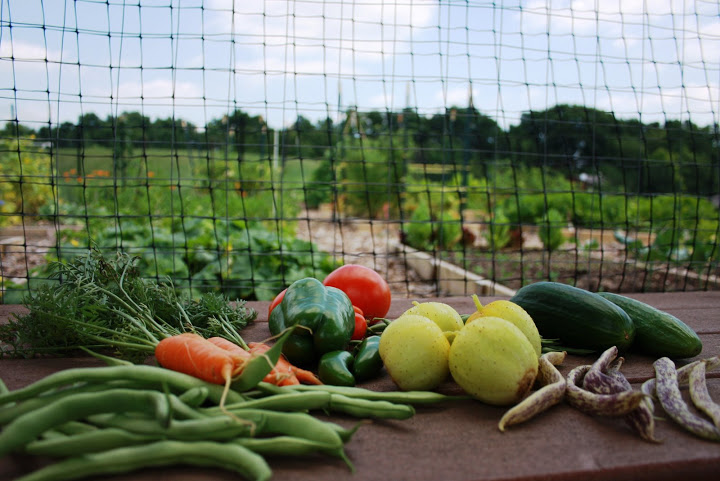After four years of successful gardening on a site behind the Knollcrest East (KE) apartments, Calvin senior Owen Selles hopes that the Calvin community garden will be moved to the center of campus, where it would be more accessible to the community. The move has received widespread support, though financial challenges remain.
When the garden was denied approval in 2008, it was planted in the current location as a temporary testing ground for the project. While the garden has been successful in that area, the obscure location has kept the garden’s profile low among students. That is something Selles hopes to change by moving the garden to a strip of land south of Bolt-Heyns-Timmer Hall with higher visibility than the current location. And he’s not alone.
The student Environmental Stewardship Coalition (ESC), physical plant and the faculty environmental stewardship committee teamed up to compose a proposal for the move. The proposal is currently in the hands of the planning and prioritization committee awaiting approval.
Their efforts follow the recommendations of a report released by the college.
“Our work has been in response to the campus sustainability report released this spring that encouraged moving the garden to promote awareness and participation,” Selles explained.
The ESC believes that in a higher profile location, the garden will be a “visible statement of our college’s convictions about creation care, community, history and sustainability.” Selles adds that the garden will also help make the campus healthier by providing fresh and locally grown produce.
“Students will be able to eat freshly harvested vegetables and locally-grown food could be served in the dining hall,” he said.
Many others agree that the move would benefit the Calvin community. Numerous organizations on campus, including the social justice club, student senate and the service-learning center have endorsed the project.
Despite popular support for the move, challenges do remain for the garden.
“Right now, as the college is making hard decisions about the future of its budget, it is not a great time to be asking for funding for new projects,” Selles acknowledged.
However, the financial difficulties are not enough to stop Selles and his fellow supporters from pushing for the garden’s movement to the main campus.
“We are determined to move forward and to “strike while the iron is hot,” Selles said.
The move comes with an estimated $9,000 price tag. Due to reports from physical plant workers of deer roaming the campus, the cost of the plan includes the installation of a large deer fence. The $9,000 budget also factors in irrigation changes and the cost of lumber for the beds.
In order to absorb some of the cost, if the project gets the green light from cabinet, the ESC plans to launch a fundraising campaign with a goal of raising about $4,000. Selles asks that students interested in supporting this effort contact the ESC by emailing calvin.esc@gmail.com.
“We will need lots of donations and volunteers to build and prepare the garden,” Selles said.
The ESC was initially disappointed by student senate’s recent decision to allot a large sum of its resources to the picnic table project. The supporters of the community garden had applied for financial support from the same $10k initiative used to purchase the tables, but senate said the proposal came too late to fund. However, senate may allot the $1,500 left over from the $10k initiative to the garden. Senate may also help the ESC raise more funds for the garden, and Selles says they look forward to working with senate going forward.
If all goes well, Selles projects that the community garden’s move could begin as early as this spring.









